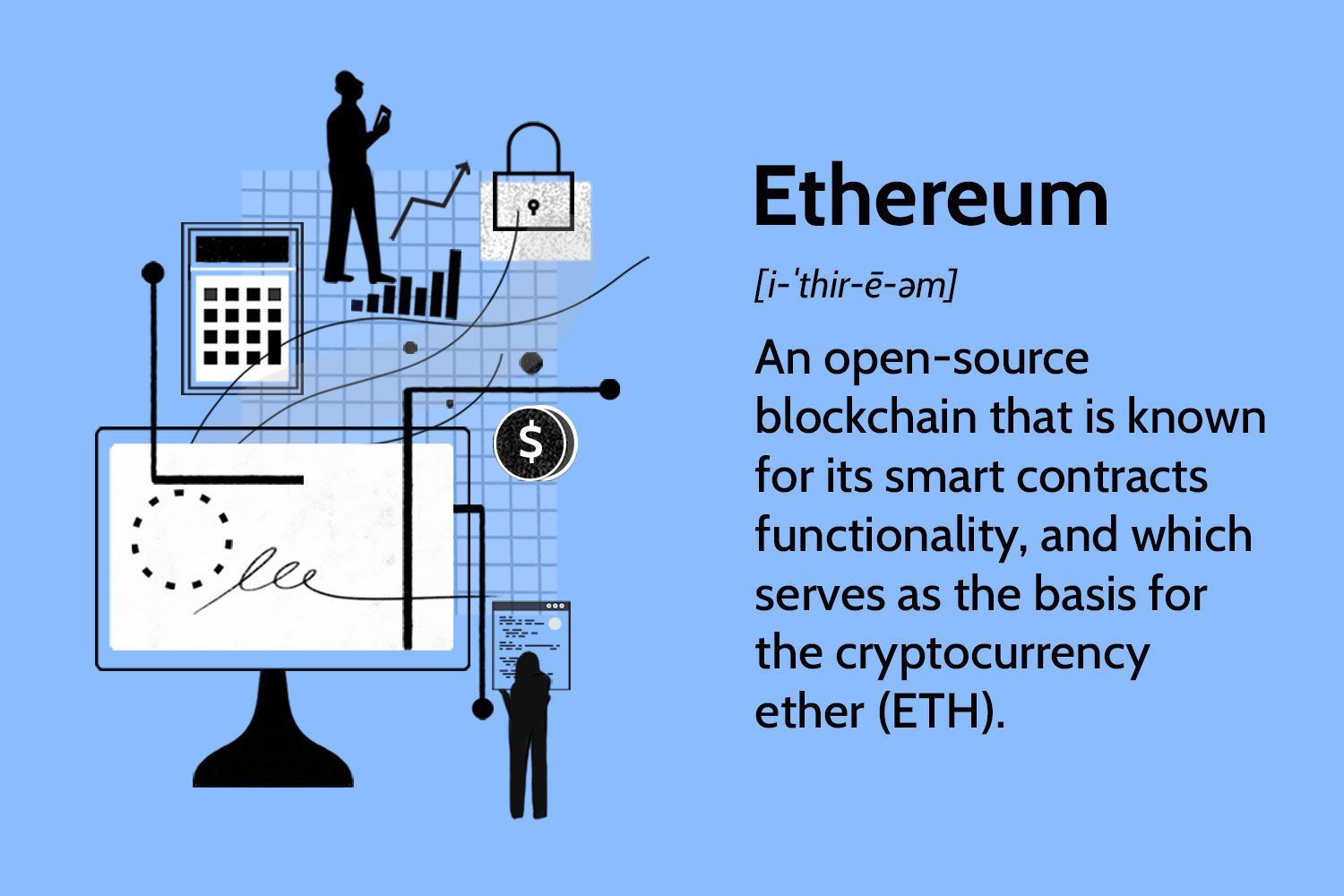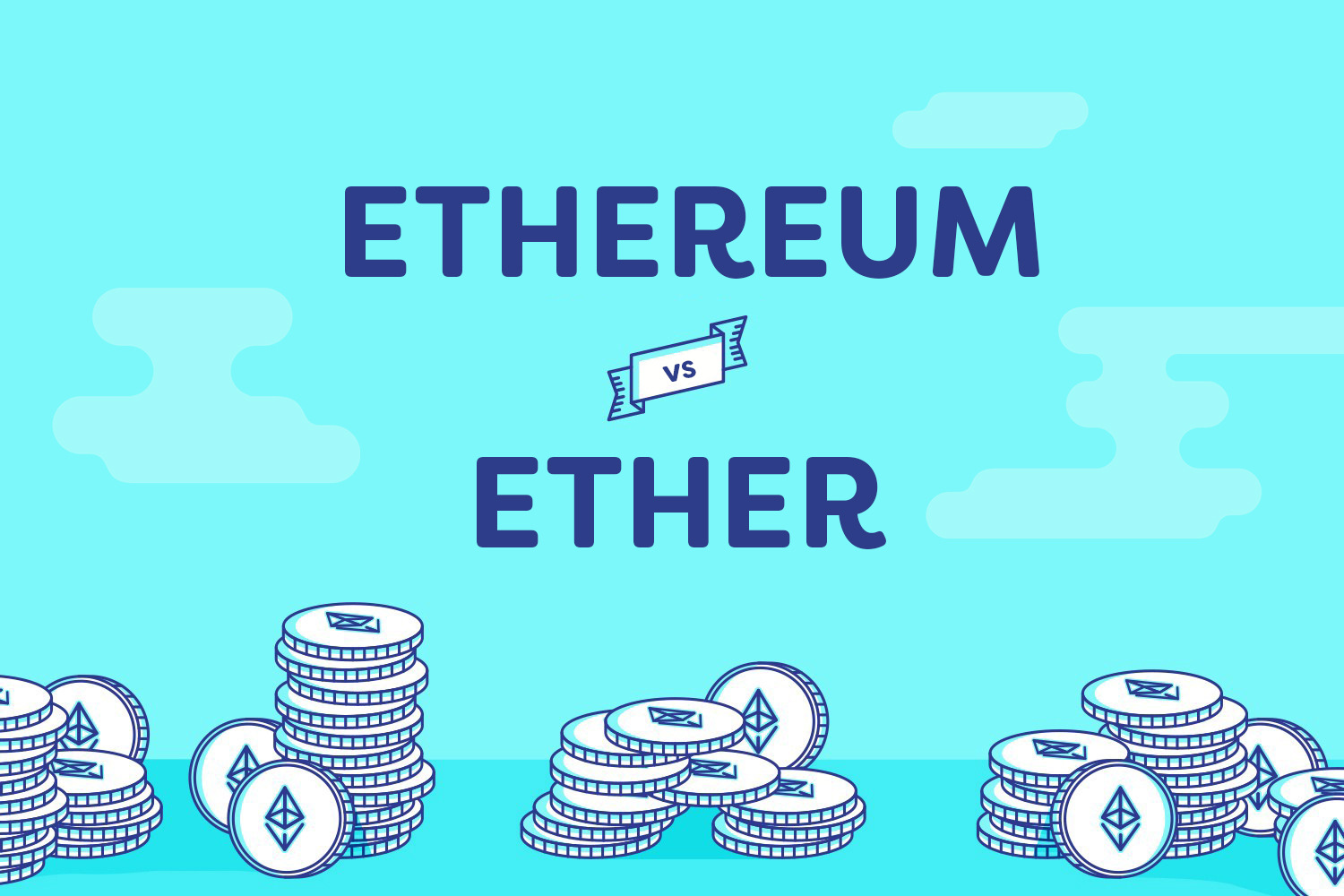Introduction
Blockchain technology has revolutionized various industries by offering decentralized and transparent solutions. One of the key innovations in the blockchain space is the concept of smart contracts. In this article, we delve into the world of Ethereum, a leading blockchain platform, and explore the fascinating realm of smart contracts.
Ethereum is not just a cryptocurrency; it is a decentralized computing platform that enables developers to build and deploy smart contracts. These self-executing contracts are powered by blockchain technology and allow for the automatic execution of predefined actions once certain conditions are met. Smart contracts eliminate the need for intermediaries, such as lawyers or brokers, by automating the agreement process in a secure and efficient manner.
Smart contracts are written in Solidity, a programming language specifically designed for Ethereum. They are executed on the Ethereum Virtual Machine (EVM), a runtime environment that runs on multiple computers across the globe, ensuring decentralization and immutability of the contract code.
The primary objective of smart contracts is to facilitate trust and eliminate the need for intermediaries. By leveraging the blockchain’s inherent security and transparency, smart contracts enable parties to interact and transact without relying on a central authority. This has wide-reaching implications for various industries, including finance, supply chain, real estate, and healthcare.
Smart contracts in Ethereum have gained significant popularity due to the platform’s robustness and widespread adoption. Ethereum has a large community of developers who constantly contribute to enhancing the capabilities and functionalities of the Ethereum ecosystem.
Throughout this article, we will explore the inner workings of smart contracts on the Ethereum network, the benefits they offer, as well as some real-world examples. However, it’s important to note that while smart contracts have numerous advantages, they also come with their fair share of limitations and challenges, which we will discuss later on.
What are Smart Contracts?
Smart contracts are self-executing agreements that run on the blockchain. These contracts are encoded with a set of predefined rules and conditions, and they automatically execute when these conditions are met. Unlike traditional contracts that rely on intermediaries to enforce and verify the terms, smart contracts eliminate the need for intermediaries and operate in a decentralized manner.
Smart contracts operate on the principle of “if-then” statements. The contract’s code contains the conditions that need to be met for the contract to execute, and the actions that will be taken when those conditions are fulfilled. Once the conditions are met, the smart contract initiates the execution of the specified actions, ensuring that the agreement is fulfilled without any manual intervention.
One of the key advantages of smart contracts is their immutability. Once a smart contract is deployed on the blockchain, its code cannot be altered or tampered with. This ensures that the terms and conditions of the contract remain secure and cannot be modified by any party, providing trust and transparency to all involved.
Smart contracts on the Ethereum network are Turing complete, meaning they can handle complex computational tasks. They can store and manipulate data, interact with other contracts, and even trigger transactions. This allows for a wide range of applications beyond simple financial transactions.
Smart contracts present a paradigm shift in contract enforcement and offer numerous benefits. By automating agreement execution, they eliminate the need for intermediaries, reducing costs and the potential for human error or manipulation. Additionally, smart contracts enable transparent and auditable transactions, as every action executed by the contract is recorded on the blockchain, providing an immutable and transparent trail of activity.
Furthermore, smart contracts introduce a level of efficiency and speed that is unparalleled in traditional contract execution. With smart contracts, the entire process, from agreement to execution, can be completed seamlessly and instantly, saving time and resources.
In the next section, we will explore how smart contracts work on the Ethereum network, shedding light on their underlying mechanisms and processes.
How do Smart Contracts Work on the Ethereum Network?
Smart contracts on the Ethereum network operate within the Ethereum Virtual Machine (EVM). The EVM is a runtime environment that executes the code of smart contracts and ensures their consistent behavior across all nodes on the Ethereum network.
When a smart contract is created, it is written in a programming language called Solidity. Solidity allows developers to define the logic, conditions, and actions of the contract. Once the code is written, it is compiled into bytecode that can be executed by the EVM.
Smart contracts on Ethereum are triggered by transactions. These transactions can be initiated by any user or application interacting with the contract. Transactions may involve sending Ether (the native cryptocurrency of Ethereum) as a form of payment or may simply trigger state changes within the contract itself.
When a transaction is broadcasted to the Ethereum network, it is picked up by mining nodes that perform the validation and inclusion of the transaction in a block. The transaction fee paid by the sender determines the priority of inclusion in a block.
Once a transaction is included in a block, the EVM executes the code of the smart contract and updates the state of the contract and the overall state of the Ethereum blockchain. The results of the contract execution are recorded in the block, providing an immutable record of the contract’s actions.
Smart contracts on Ethereum can interact with other contracts or call external functions to perform complex operations. This allows for the creation of decentralized applications (DApps) that leverage the power of multiple smart contracts.
It’s important to note that the execution of smart contracts on Ethereum comes with a cost. Known as gas, this cost is denominated in Ether and is paid to the network as a fee for computational resources consumed during contract execution. The more complex and resource-intensive a smart contract is, the higher the gas cost.
Overall, smart contracts on the Ethereum network bring automation, transparency, and efficiency to various industries. They allow for the creation of decentralized applications that operate without the need for trust in a central authority. The robustness and flexibility of the Ethereum platform, combined with the power of smart contracts, have paved the way for countless innovative solutions and use cases.
Benefits of Smart Contracts in Ethereum
Smart contracts in Ethereum offer a multitude of benefits that have the potential to transform various industries by providing secure, efficient, and decentralized solutions. Let’s explore some of the key advantages:
1. Automation and Efficiency: Smart contracts automate the execution of agreements, eliminating the need for intermediaries and manual intervention. This automation streamlines processes, reduces costs, and significantly improves efficiency. Once the predefined conditions are met, the smart contract automatically executes the specified actions, saving time and resources for all parties involved.
2. Trust and Transparency: Smart contracts operate on a decentralized blockchain, ensuring transparency and immutability. The terms and conditions of the contract are encoded in the contract code, and once deployed, cannot be altered by any party. This eliminates the need to trust a central authority, as all actions and outcomes are recorded on the blockchain, providing a transparent and auditable trail of activity.
3. Cost Reduction: Traditional contracts often involve intermediaries such as lawyers, brokers, or notaries, adding significant costs to the process. With smart contracts, these intermediaries are eliminated, reducing expenses and making transactions more cost-effective. Furthermore, the automation of contract execution minimizes the risk of errors or disputes, further reducing potential costs.
4. Security: Smart contracts leverage the robust security features of the Ethereum blockchain. Once a contract is deployed, its code is immutable and cannot be tampered with. This ensures that the terms and conditions of the contract are enforced without any possibility of manipulation.
5. Time-Saving: By automating the execution of contracts, smart contracts save significant time for all parties involved. Rather than going through lengthy manual processes, contracts are executed seamlessly and instantly, accelerating transaction times and improving overall efficiency.
6. Programmability and Customizability: Smart contracts in Ethereum are highly programmable and customizable. Developers can write complex logic and conditions within the contract code, allowing for a wide range of applications beyond simple financial transactions. This flexibility enables the creation of decentralized applications (DApps) that can revolutionize various industries.
7. Global Accessibility: Ethereum is a decentralized blockchain network accessible to anyone with an internet connection. Smart contracts deployed on Ethereum are available to users worldwide, enabling global accessibility and inclusion. This opens up opportunities for cross-border transactions and collaboration, breaking down barriers imposed by traditional systems.
These benefits make smart contracts in Ethereum an attractive solution for a wide range of applications, including finance, supply chain management, voting systems, insurance, and many more. However, it’s important to acknowledge the limitations and challenges that come with smart contract technology, which we will discuss in the next section.
Examples of Smart Contracts on the Ethereum Network
Smart contracts on the Ethereum network have gained traction and have been utilized in various real-world applications. Let’s explore some notable examples:
1. Decentralized Finance (DeFi): Ethereum has emerged as a leading platform for decentralized finance applications. Smart contracts enable DeFi protocols like lending and borrowing platforms, decentralized exchanges, and yield farming. Users can securely lend their assets, trade without intermediaries, and earn passive income through DeFi protocols, all powered by smart contracts.
2. Supply Chain Management: Smart contracts have the potential to transform supply chain management by enhancing transparency and traceability. Stakeholders can create smart contracts to track and verify the movement of goods across the supply chain. This ensures authenticity, reduces fraud, and streamlines logistics by automating payment settlements and triggering actions based on predefined conditions.
3. Non-Fungible Tokens (NFTs): NFTs have gained immense popularity in recent years, and Ethereum has been a primary platform for their creation and trading. Smart contracts are used to represent ownership, uniqueness, and authenticity of digital assets such as artwork, collectibles, and virtual real estate. This allows for secure and transparent ownership transfers between parties.
4. Decentralized Autonomous Organizations (DAOs): DAOs are organizations that run on smart contracts and operate in a decentralized and autonomous manner. Ethereum-based smart contracts allow stakeholders to participate in decision-making, governance, and fund allocation. This eliminates the need for a central authority and enables transparent and democratic management of resources.
5. Insurance: Smart contracts in Ethereum can revolutionize the insurance industry by automating claim settlements and reducing fraud. Policyholders and insurers can enter into smart contracts that automatically evaluate and pay claims based on predefined conditions and triggers. This improves efficiency, transparency, and trust in the insurance process.
6. Voting Systems: Smart contracts can be used to create secure and tamper-proof voting systems. By leveraging the transparency and immutability of the Ethereum network, smart contracts enable verifiable and auditable voting processes, ensuring the integrity of elections and enhancing trust in democratic systems.
7. Real Estate: Smart contracts can simplify and streamline real estate transactions by automating tasks such as property transfers, escrow agreements, and rental agreements. These contracts eliminate the need for intermediaries and reduce the risk of fraudulent activities, making real estate transactions more secure and efficient.
These examples illustrate the versatility of smart contracts on the Ethereum network and the transformative potential they hold across various industries. As developers continuously innovate and explore the capabilities of Ethereum smart contracts, we can expect to witness further advancements and novel use cases in the future.
Limitations and Challenges of Smart Contracts in Ethereum
While smart contracts on the Ethereum network offer numerous advantages, they also come with certain limitations and challenges that should be taken into consideration. Let’s explore some of the key limitations:
1. Immutability: While immutability is a benefit of smart contracts, it can also pose challenges. Once a smart contract is deployed, its code cannot be changed or updated. This means that any bugs or vulnerabilities in the contract’s code cannot be easily fixed without redeploying a new contract. Solidity code needs to be thoroughly tested to ensure the contract’s behavior is as desired before deployment.
2. Lack of Legal Enforcement: Traditional contracts have the backing of legal systems for enforcement, which may not be the case with smart contracts. In the event of disputes or breaches, there may not be clear legal frameworks to support resolution. The legal enforceability of smart contracts is still being explored, and the acceptance and recognition of smart contracts in traditional legal systems may take time.
3. Complexity: Writing smart contracts in Ethereum requires technical expertise and a deep understanding of the Solidity programming language. Complex contracts may be prone to bugs or vulnerabilities, which can result in unexpected outcomes or security risks. Thorough testing and code audits are necessary to mitigate these risks.
4. Scalability and Performance: As the Ethereum network has grown in popularity, it has faced challenges in terms of scalability and transaction throughput. During periods of high demand, network congestion can occur, leading to increased transaction fees and slower execution times. This can impact the performance and usability of smart contracts.
5. Oracles and Data Reliability: Smart contracts in Ethereum are limited to the data that exists within the blockchain. They cannot directly access external data sources or real-world events. Oracles, which act as bridges between the blockchain and external data, are required to provide accurate and reliable data to the smart contract. However, ensuring the trustworthiness and security of oracles can be a challenge.
6. Regulatory Compliance: As smart contracts enable a wide range of applications, compliance with existing regulations can be a challenge. Various industries, such as finance and healthcare, have stringent regulatory requirements that may not align seamlessly with the decentralized nature of smart contracts. Bridging the gap between regulatory compliance and the benefits of smart contracts is an ongoing challenge.
7. User Error and Irreversibility: Smart contracts execute automatically once conditions are met, and their actions are irreversible. If a user mistakenly triggers an action or sends incorrect data, there may be no recourse to undo the transaction or recover lost assets. Users need to be cautious and double-check their interactions with smart contracts to avoid irreversible mistakes.
Despite these limitations and challenges, continuous developments in the Ethereum ecosystem, such as Ethereum 2.0 and layer 2 scaling solutions, aim to address scalability and performance concerns. Additionally, ongoing research and collaborations seek to address regulatory and legal aspects to ensure the wider adoption and integration of smart contracts into various industries.
Conclusion
Smart contracts on the Ethereum network have emerged as a groundbreaking technology with the potential to revolutionize various industries. By automating the execution of agreements, smart contracts eliminate the need for intermediaries and offer benefits such as efficiency, transparency, and cost reduction. Ethereum, with its robust platform and large developer community, has become the go-to blockchain for building and deploying smart contracts.
Throughout this article, we explored the concept of smart contracts and how they operate on the Ethereum network. We discussed their advantages, including automation, trust, and security. Additionally, we explored real-world examples of smart contracts being used in decentralized finance (DeFi), supply chain management, NFTs, DAOs, insurance, voting systems, and real estate.
However, it’s important to acknowledge the limitations and challenges that come with smart contracts. Immutability, legal enforceability, complexity, scalability, data reliability, regulatory compliance, user error, and irreversibility are factors that need to be considered and addressed for the wider adoption of smart contracts.
Despite these challenges, the continuous development of the Ethereum ecosystem, alongside ongoing research and innovation, aims to overcome these limitations. As Ethereum 2.0 and scalable solutions are implemented, scalability and performance concerns are being addressed. Efforts are also being made to bridge the gap between regulatory compliance and the benefits of smart contracts.
In conclusion, smart contracts in Ethereum have opened up a world of possibilities in terms of decentralized, transparent, and efficient applications. As the technology evolves and the ecosystem matures, we can expect to see further advancements and use cases that harness the true potential of smart contracts on the Ethereum network.

























